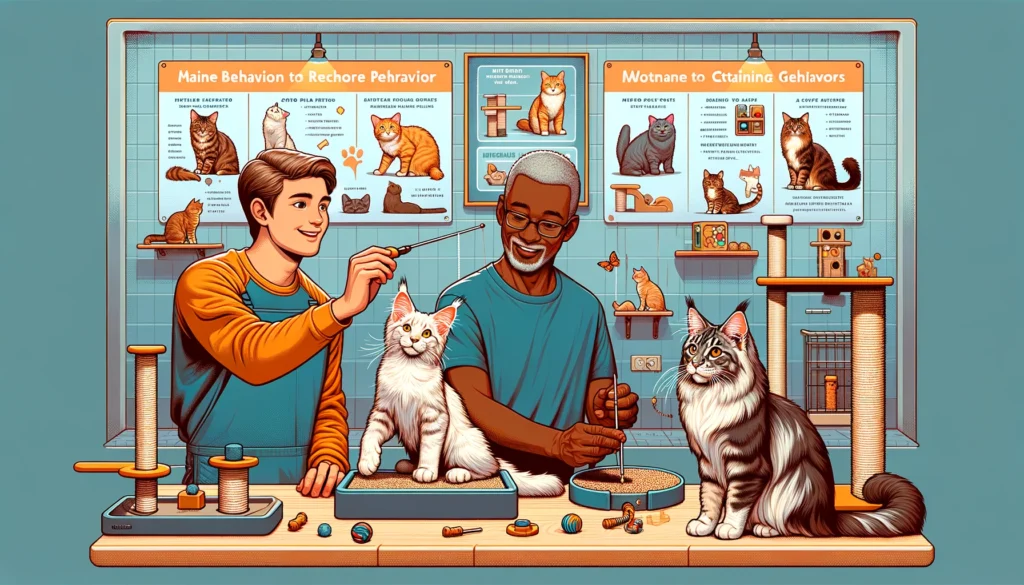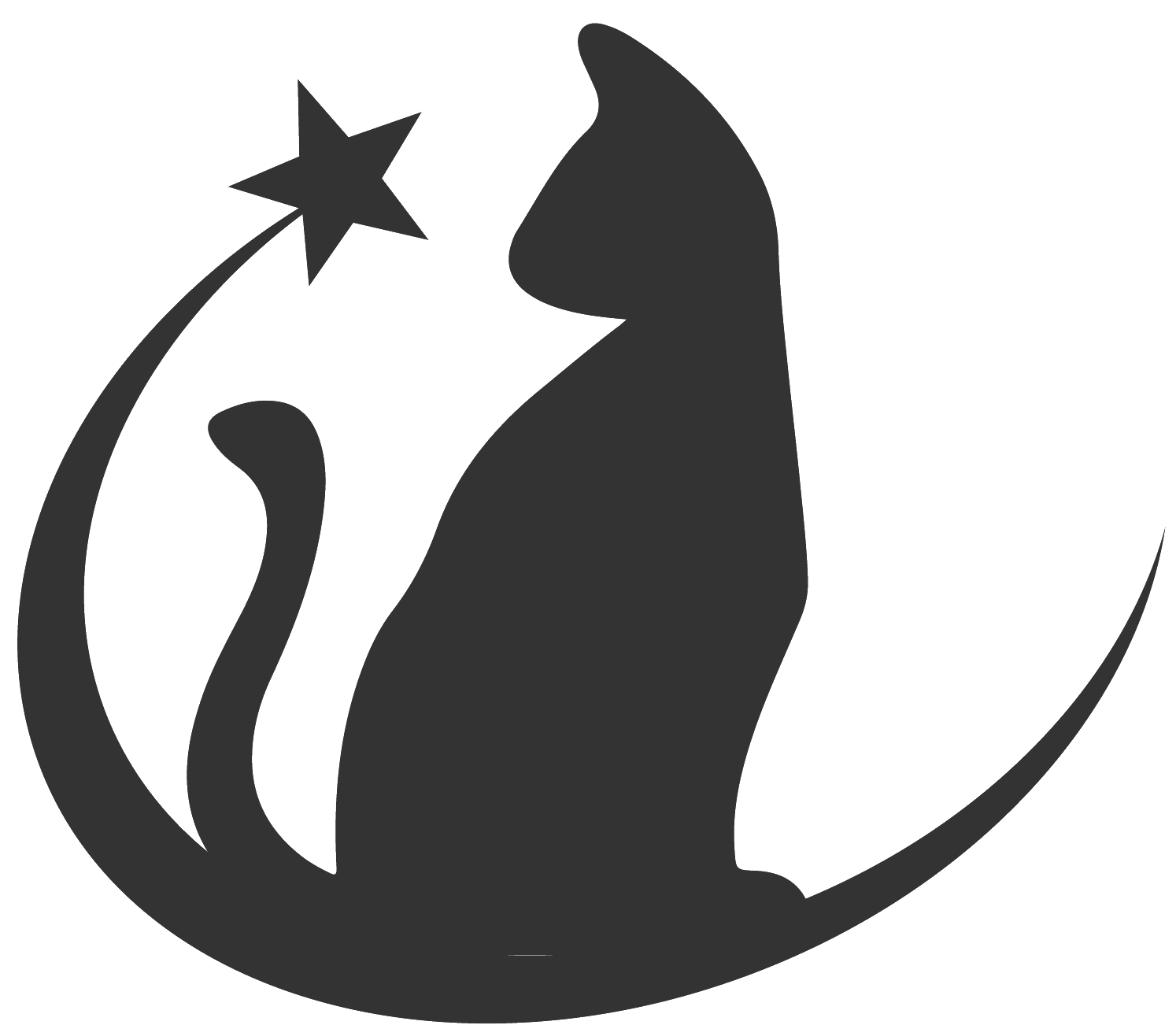
Maine Coon cats, known for their large size, tufted ears, and friendly nature, are one of the most beloved cat breeds. However, understanding and training these gentle giants require a deep insight into their behavior and needs. This comprehensive guide delves into Maine Coon behavior and provides effective training strategies to help you nurture a well-mannered and happy feline companion.
Understanding Maine Coon Behavior
The Social Nature of Maine Coons
Maine Coons are known for their sociable and affectionate personalities. Unlike many other cat breeds, they enjoy the company of humans and other pets. This sociability makes them excellent family pets.
Playfulness and Intelligence
Maine Coons are highly intelligent and playful. They have a knack for solving puzzles and are often compared to dogs in their ability to learn tricks and commands. Providing mental stimulation through toys and games is essential for their well-being.
Vocal Communication
Maine Coons are known for their unique vocalizations. They rarely meow but use chirps and trills to communicate. Understanding these sounds can help you better respond to their needs and moods.
Training Your Maine Coon
Starting with Basics
Training should begin with basic commands like “sit,” “stay,” and “come.” Using positive reinforcement techniques, such as treats and praise, can make the training process enjoyable for both you and your cat.
Litter Box Training
Litter box training is crucial for indoor cats. Maine Coons generally adapt well to litter boxes, but it’s essential to keep the box clean and in a quiet location to encourage regular use.
Teaching Tricks
Given their intelligence, Maine Coons can learn various tricks. From fetching toys to walking on a leash, these cats can be trained to perform tasks that stimulate their minds and provide physical exercise.
Behavioral Challenges and Solutions
Dealing with Aggression
While Maine Coons are typically gentle, they can exhibit aggressive behavior if they feel threatened. Identifying the triggers and addressing them can help mitigate such behavior.
Managing Scratching
Scratching is a natural behavior for cats, but it can be problematic if directed at furniture. Providing scratching posts and pads can redirect this behavior to more appropriate outlets.
Handling Separation Anxiety
Maine Coons can develop separation anxiety due to their social nature. Gradually acclimating them to alone time and providing engaging toys can help reduce anxiety.
Health and Nutrition
Dietary Needs
A balanced diet is crucial for the health of Maine Coons. High-quality cat food that meets their nutritional requirements can prevent obesity and other health issues.
Regular Vet Visits
Regular veterinary check-ups are essential for early detection and treatment of potential health problems. Vaccinations, dental care, and parasite prevention should be part of their health routine.
Grooming Requirements
Maine Coons have long, thick fur that requires regular grooming to prevent matting and hairballs. Brushing your cat several times a week can keep their coat healthy and reduce shedding.
Creating a Stimulating Environment
Indoor Enrichment
Providing an enriching environment is key to keeping your Maine Coon happy. Cat trees, interactive toys, and puzzle feeders can keep them mentally and physically stimulated.
Outdoor Exploration
If safe and feasible, outdoor exploration can be highly beneficial for Maine Coons. Using a leash or providing a secure outdoor enclosure can allow them to explore their surroundings safely.
Social Interaction
Ensuring your Maine Coon has ample social interaction is crucial. Regular playtime, cuddle sessions, and positive reinforcement can strengthen the bond between you and your cat.
Maine Coon Behavior with Other Pets
Introducing New Pets
Introducing a new pet to your Maine Coon should be done gradually. Allowing them to sniff and observe each other from a distance can help ease the transition.
Maintaining Harmony
Maintaining harmony in a multi-pet household involves monitoring interactions and ensuring each pet has its own space. Positive reinforcement can encourage friendly behavior.
Training Tips for Specific Behaviors
Leash Training
Leash training can be a rewarding experience for Maine Coons. Starting with a harness and gradually introducing the leash can make the process smoother.
Bathing and Grooming
Teaching your Maine Coon to tolerate baths and grooming from a young age can make these tasks easier. Using treats and gentle handling can help them associate grooming with positive experiences.
Handling Veterinary Visits
Training your Maine Coon to tolerate carrier travel and veterinary visits is essential. Gradual desensitization and positive reinforcement can reduce stress during these events.
Understanding Maine Coon Body Language
Tail Movements
Maine Coons communicate a lot through their tails. Understanding the different tail positions and movements can provide insights into their mood and intentions.
Ear Positions
The position of a Maine Coon’s ears can indicate their feelings. Forward-facing ears often signal curiosity, while flattened ears may indicate fear or aggression.
Eye Expressions
Maine Coons use their eyes to express a range of emotions. Slow blinking can be a sign of affection, while dilated pupils may indicate excitement or stress.
FAQs
What are the common behavioral traits of Maine Coon cats?
Maine Coons are known for their friendly, sociable nature and intelligence. They are playful, affectionate, and often exhibit dog-like behaviors.
How can I train my Maine Coon to use a litter box?
Start by placing the litter box in a quiet, accessible location. Use positive reinforcement when your cat uses the box correctly, and keep it clean to encourage regular use.
Why does my Maine Coon scratch furniture, and how can I stop it?
Scratching is a natural behavior for cats. Providing scratching posts and pads can help redirect this behavior. Reward your cat for using these alternatives to discourage furniture scratching.
What should I do if my Maine Coon shows signs of aggression?
Identify and address the triggers for aggression. Ensure your cat has a safe space and use positive reinforcement to encourage calm behavior. Consult a veterinarian if the behavior persists.
How can I keep my Maine Coon entertained indoors?
Provide a variety of toys, cat trees, and puzzle feeders to keep your Maine Coon mentally and physically stimulated. Regular playtime and interaction are also important.
What is the best way to introduce a new pet to my Maine Coon?
Introduce new pets gradually. Allow them to sniff and observe each other from a distance, and use positive reinforcement to encourage friendly interactions.
Understanding and training your Maine Coon is a rewarding journey that strengthens the bond between you and your feline friend. By recognizing their unique behavior and providing appropriate training and enrichment, you can ensure a happy and harmonious life together. Embrace the playful, intelligent nature of Maine Coons, and enjoy the companionship of one of the most remarkable cat breeds.
Sources:
